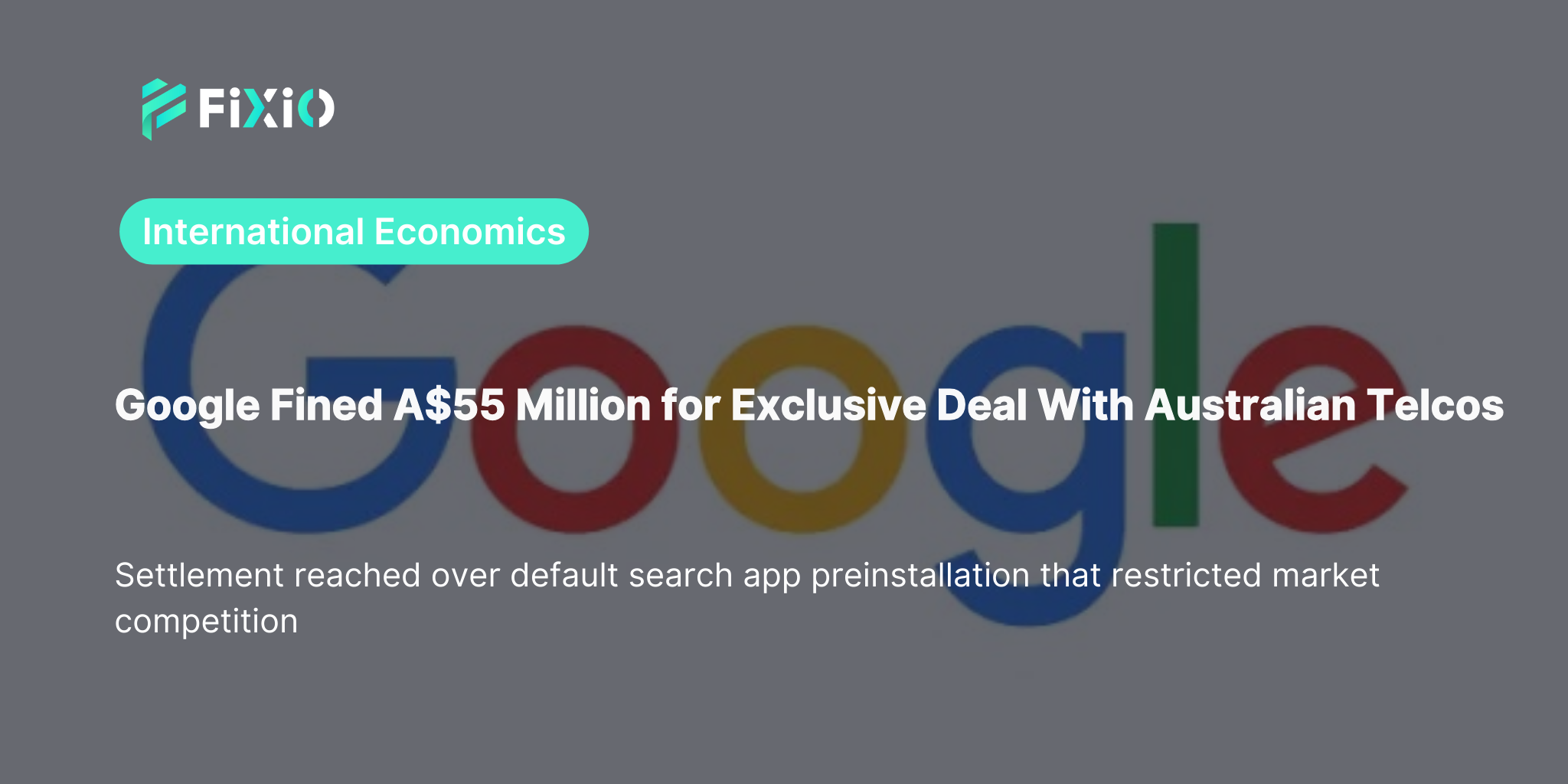
August 18, 2025 | Editorial Team
Google has agreed to pay a fine of A$55 million (approx. US$35.8 million) after reaching a settlement with Australian regulators over anticompetitive search engine deals. This article explores the background of the agreement, the stance of the ACCC, the response from the companies involved, and the broader context of global regulatory trends.
Between December 2019 and March 2021, Android devices sold by Telstra and Optus came with the Google Search app exclusively pre‑installed. As many consumers stick with default settings, this “default status” strongly limited competition. Furthermore, Telstra and Optus received a portion of advertising revenues, creating a structure that benefitted both sides. Although this appeared as a commercial partnership, regulators argue it acted as a barrier to competing search engines.
The ACCC labeled the agreement an anticompetitive deal that impeded market competition. Google admitted liability, cooperated with the regulator, and avoided prolonged litigation through this resolution. The penalty of A$55 million (approx. US$35.8 million) is now pending court approval, reflecting a joint proposal by both parties.
Google emphasized that the problematic terms are no longer part of its current contracts and welcomed the resolution. It pledged to remove “exclusive pre‑install clauses” in future agreements. Telstra and Optus also pledged to cease such exclusive arrangements and continue cooperating with regulators.
This case extends beyond Australia. The EU has enacted the Digital Markets Act (DMA), and the U.S. is stepping up antitrust enforcement. Japan is also reviewing its competition laws to address tech dominance. Search and advertising remain concentrated markets, and Australia's deal could serve as a precedent for regulation worldwide.
Economic analysts view Google's early acceptance of the fine as a strategic move to limit reputational harm. Consumer groups caution that while fines can deter, structural dominance remains unaffected. They urge regulators to focus on expanding search choices to foster genuine competition.
The Google-Australia case symbolizes a shift in tech-regulator dynamics. Balancing consumer protection with innovation will require more sophisticated regulations. This agreement could serve as a landmark for defining acceptable dominance in search and ad markets—the start of a global regulatory tightening.
For the latest economic and market news, visit the FIXIO Blog.
This article is an SEO-optimized sample compiled by our editorial team using publicly available information.
This article is independently compiled and analyzed by our editorial team based on publicly available and reliable information.
It is intended solely for informational purposes and should not be considered legal or investment advice.
Superior trade execution & trading conditions with the NDD method.

The online FX industry provides a platform for investors worldwide to engage in the buying and selling.

Subscribe to our daily newsletter and get the best forex trading information and markets status updates
Trade within minutes!
Comment (0)